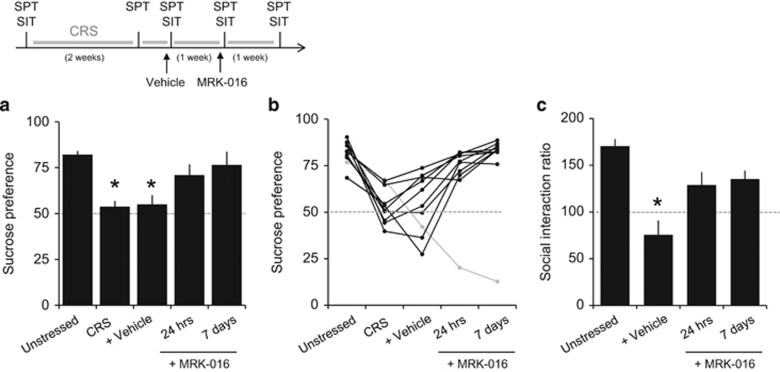Figure 4.
MRK-016 rapidly reverses loss of sucrose preference (SPT) and social interaction (SIT) behaviors after chronic restraint stress (CRS). (a) Quantification of results from one group of rats in the sucrose preference test at five time points: baseline, after 2 weeks of CRS, 24 h after an additional 3 days of CRS and 24 h after injection of vehicle, after one week of CRS and 24 h after an injection of MRK-016 (3 mg/kg), and in the same animals after an additional week of CRS and 7 days after the injection of MRK-016. Mean sucrose preference differed significantly following vehicle injection compared with all other groups (F(3,33)=20.63, p<0.0001, n=12 rats). *p<0.05 compared with pre-CUS baseline, Tukey's post hoc test). (b) Results in individual animals for the full experiment. (c) Quantification of results from one group of rats in the social interaction test at four time points: baseline, after 2 weeks of CRS and 24 h after injection of vehicle, after 1 week of CRS and 24 h after an injection of MRK-016 (3 mg/kg), and in the same animals after an additional week of CRS and 7 days after the injection of MRK-016. Mean social interaction ratios differed significantly following vehicle injection compared with all other groups (F=(2,14)=11.84, p=0.0009, n=8 rats). *p<0.05 compared with pre-CUS baseline, Tukey's post hoc test).

